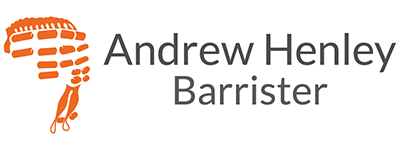I recently appeared at Worthing Magistrates Court on behalf of a client accused of a drink/driving offence. The legal limit for driving while intoxicated through drink is 35 microgrammes of alcohol per 100 millilitres of breath, with a 5-point margin of error; at 40, a conviction follows. A high reading is normally around 70-80. The client I represented blew 133, four times over the limit!
From the beginning, it was obvious to me that one aspect of the case was in question. My client was clearly drunk and had clearly been driving, but the feature that interested me was the context of her driving. She had been stopped in a caravan park, and the law states that for someone to be convicted while drink/driving, they need to be doing so on ‘a road or public place’. It was not clear whether a caravan park fell into the category covered by those two terms.
When in doubt about the application of the law to the facts of a particular case, a quality lawyer will go to the most recent authority. The question of a ‘public place’ in relation to drink/drive law was addressed in an appeal from the Wimbledon Magistrates Court to the High Court. The Appellant successfully appealed his drink/drive conviction by arguing that the police failed to prove that Kingston University was public place. In short, it was the lack of evidence that led to the success, rather than whether the location was public or not. The benefit of this appeal is the court drew together the current state of the law, relying on older cases and restating it. What also is clear is that the prosecution’s attention has been drawn to their shortcoming in relation to the evidential requirements of these cases. They may have closed the door after the horse had bolted, but it ensures no more escape!
Returning to the case in Worthing Magistrates, my client’s abnormally high reading could have attracted a prison term. Any attempt at manipulation by pursuing a trial in the vague hope that the police would fail to produce the necessary evidence, would have destroyed any mitigation. Ultimately, a plea of guilty was entered at the earliest possible opportunity, to avoid a prison term. Having said that, a visit to the caravan park still took place to see if there was any evidence that it was not a public place.
